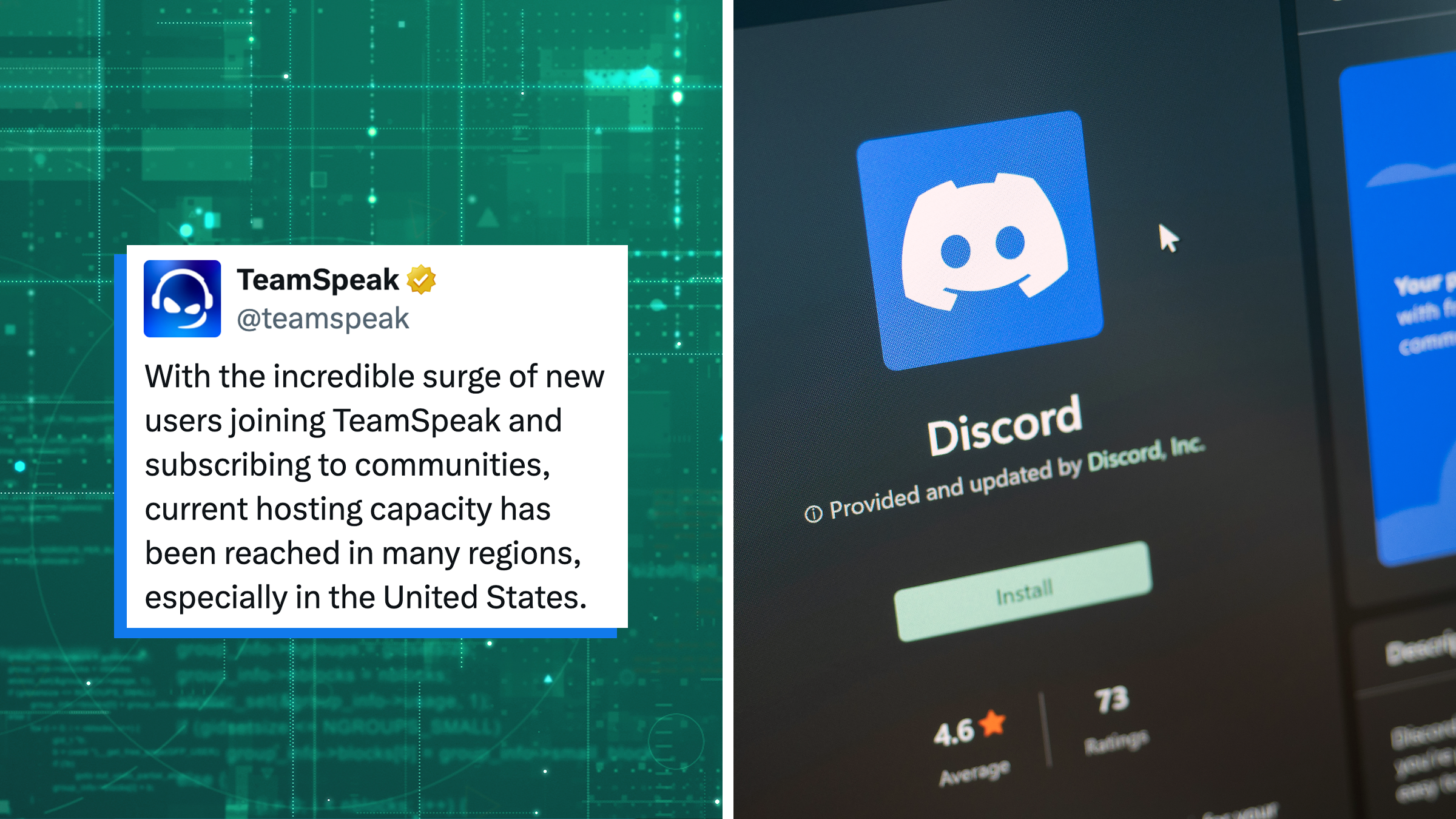It was an interoffice conflict old as time. During the sweltering summer months, Flignir and his co-workers battled for dominance over the thermostat.
The men in the office were required to wear suits and preferred lower temperatures. The women in the office disagreed. Flignir, a 36-year-old photographer and web designer for a major collection of American antique furniture, believed that since his female co-workers had the option of putting on additional clothing, they should cede control of the thermostat to the overheated men. Battle lines were drawn, and neither side would give an inch.
Flignir desired an outside perspective. Was his solution rational, he wondered? Or was he too close to the problem to see both sides? Was he a jerk for expecting other people to change their behavior to accommodate his issues?
Flignir took his grievances to Reddit, but none of the existing subreddits would permit him to post his query. Undaunted, he created his own.
How Reddit's 'Am I the Asshole' subreddit got started
On June 8, 2013, the Am I The Asshole? (AITA) subreddit sprang into being on Reddit with a mission to provide a space for people to anonymously share their non-violent conflicts and receive objective arbitration from commenters.
The plan posed legitimate concerns. Six years earlier, a site called Juicy Campus began popping up on college laptop screens across the country. Advertising itself as a purveyor of “online anonymous free speech,” the site promptly devolved into a maelstrom of rumors, degradation, and abuse as students weaponized their anonymity against one another. The site shuttered after 18 months, but not before inspiring several equally flawed options.
Yik Yak, an anonymous messaging app, launched in 2014 and lasted three years before toxicity amongst users caused the site to ban itself in middle school and high school campuses, only to bow to the inevitable and fold entirely. Accusations of cyberbullying plagued Secret, an app intended to share anonymous messages between friends, and Ask.fm, an anonymous social networking site founded in 2010.
AITA may have suffered a similar fate were it not for the forum’s framework, carefully implemented by the sub’s early team of moderators and revised as AITA grew in popularity.
As of October 2023, the subreddit had more than 11.4 million followers—or "potential assholes," in the site's parlance.
The subreddit's "about community" text reads: "A catharsis for the frustrated moral philosopher in all of us, and a place to finally find out if you were wrong in an argument that's been bothering you. Tell us about any non-violent conflict you have experienced; give us both sides of the story, and find out if you're right, or you're the asshole."
What are the 12 rules of AITA?
Today, participants are asked to abide by a set of 12 rules, the first of which requires that they “Be civil.” It’s an ironic request from a site dedicated to calling out assholes, but a necessary one.
AITA’s goal is to provide users with an honest accounting of their behavior and actionable feedback for how to improve it. The process falls apart when users attack the individual, rather than their choices or ideology.
Civility is upheld by a team of 18 men and women between the ages of 18 and 50 who review the 850 threads the sub receives daily, deleting content that violates AITA policy. All the moderators volunteer part-time, balancing their administrative duties with jobs as lawyers, artists, writers, students, computer programmers, doctors, and full-time parents.
“It’s a fantastic concept for a community,” says Steven, a 30-year-old moderator from Pennsylvania, in a Reddit message to the Daily Dot. “It scratches an itch that people love.”
Does 'Am I the Asshole?' have famous fans?
In May 2019, Chrissy Teigen tweeted to her 11.4 million followers that she had been reading from Am I the Asshole on Reddit for “truly...6 hours now.” Less than two months later, in the middle of a hot July night, AITA reached 1 million subscribers. The mods joke that Teigen’s tweets helped boost exposure, but real growth happened organically, as individual stories traveled throughout Reddit, then transcended it, becoming the stuff of legends.
I have been reading the “I am the asshole?” (AITA) section of Reddit for truly...6 hours now
— chrissy teigen (@chrissyteigen) May 25, 2019
The juicier posts became easy fodder for blogs and cable news broadcasts. Late-night shows asked guests to dissect them on their YouTube channels.
29-year-old Danny Vega went one step further: He started a podcast.
The Am I the Asshole podcast
Vega, a New York-based freelance producer, discovered AITA on Reddit through a Fox News article. The outlet picked up one of the site’s more controversial posts, the story of a man who wanted to know if he was an asshole for asking his obese seatmate to pay him 150 dollars for encroaching on his personal space during a five-hour flight. Vega, who studied philosophy as an undergrad, saw the potential for a fun project and an interesting thought exercise.
A few months later, he introduced the Am I The Asshole podcast, where he and a rotating guest host debate and analyze selected posts from the sub. “One of the goals of the podcast,” he tells the Daily Dot, “is to make people see the other side as much as possible.” His show endeavors to explore multiple angles of an issue, and while it’s rare for anyone to change their mind on a judgment, he hopes listeners will be exposed to different perspectives and will grow to understand people more completely.
In the grand scheme of subreddits, AITA is small, only the 223rd-largest sub on the site. Its influence, however, is outsized. Stories regularly go viral, and it’s not unheard of for people to stumble upon one of the site’s anonymous posts and recognize themselves in the identifying details. The mods say chance encounters like these have prompted some interesting conversations as the original poster is forced to reckon honestly with the person with whom they’re having issues.
“Outing is a concern that a lot of people have on Reddit,” Meloetta, a 26-year-old mod and computer programmer from the Midwest, writes. “It's one of the increasingly rare places where you can have complete anonymity if you want.”
In an attempt to cut down on unwanted confrontations, mods allow users to post using throwaway accounts. Administrative bulletins caution would-be posters that anything they write has the potential to be broadcast anywhere, and if they came here for judgment, they should expect to receive it.
“Accept your judgment” is AITA’s third rule, and it presents an emotional challenge for users. “No one likes to think of themselves as the bad guy,” Steven explains, “so it can come as a shock when thousands of people attempt to pop that bubble.”
Vega found himself on the receiving end of some internet arbitration after sharing what he describes as a “trivial” offense: “I posted that I smoked my Juul in my apartment without my girlfriend’s knowledge.”
He says the criticism he received was harsh, congruous with some of the other feedback he’s seen on the site where people are eager to pass judgment and diagnose others, armed with only 3,000 characters of information.
“I think that’s the part I find alarming and harmful,” Vega says. “When you have thousands of comments coming at you, I think that messes with you.”
The AITA moderators say there are two types of people who frequent the sub. There are the “out-of-towners,” newbies who stumble upon it via the sub’s more dramatic content and who disrupt decorum with threatening comments, insults, and targeted harassment toward individual posters. Then there is the core group of AITA regulars whom the mods describe as “good people” who “embody the spirit of the sub” and endeavor to adhere to its rules and provide constructive criticism.
The mods acknowledge that some of the stories—"probably more than we’d all hope for”—are fake. The threshold for removing these posts is high and when deciding if a story is “beyond a reasonable doubt,” the mods ask themselves if the behavior exhibited seems particularly bizarre or too idiotic to be believed. Or, in internet-speak, “Would Florida man do it?”
To navigate the sub like a regular, the mods recommend steering clear of the front page where the “get out your popcorn” stories tend to reside. Instead, they suggest sorting through the sub’s content using the “New” tab, which allows users to access the sub’s most recent—and often most relatable—posts.
“You find people who have families or friends taking advantage of them. You find people who are insecure or just unsure. You find some people who are real assholes but seemingly oblivious. You find people with limited life experiences that need perspective,” Steven says. “And some of these things are things that you have actual experience with or perspective to share.”
Understanding 'what does it mean to be an asshole?'
What does it mean to be an asshole? Is AITA, as some cynics suggest, space for assholes to congregate and congratulate one another on being assholes? Is it, as the sub promises, “A catharsis for the frustrated moral philosopher in all of us”? Are the sub’s posters the assholes for confessing their issues, or are we the assholes for reading, judging, and sharing?
At a time when morality exists on a sliding scale when labels are simultaneously damning and meaningless, what does it truly mean to be an asshole?
“If you want to understand social attitudes,” linguist Geoffrey Nunberg tells the Daily Dot, “look at the language people use without theorizing it.”
Nunberg, who teaches at the UC Berkeley School of Information and whose commentaries can be heard on NPR’s Fresh Air, is an expert on assholes. In 2012, he published his book, Ascent of the A-Word: Assholism, the First Sixty Years, a comprehensive investigation into the role the epithet has played on our cultural lexicon.
Heralded as “America’s most popular insult,” asshole is still a relatively young word by linguistic standards. The term emerged during World War II, reportedly coined by enlisted men talking shit about their superiors. Asshole sauntered into everyday speech during the radical ’70s, where it proceeded to dislodge a slew of similarly effective, albeit slightly variant, dirty words.
The definition of an asshole differs from person to person, but much like its anatomical counterpart, people tend to recognize one when it’s presented to them. Unlike narcissism, which is inherent in a person, or “being a shit,” which Nunberg describes as an “intrinsic malignity,” a person isn’t born an asshole; they just engage in behavior that society classifies as asshole-ish.
To label a person an asshole is to level a “very intimate kind of judgment. It’s a term you use for the guys in the office or the guy on the highway or your brother-in-law,” Nunberg says. “It’s someone who’s failing to see what they’re morally obliged to see.”
For every yin, there is a yang, and for every person who behaves like an asshole, there’s someone else willing to call them out on it. Nunberg refers to this as the cycle of asshole-ism, in which civilized society rewards members for verbally policing behavior that society has deemed as untoward. The cycle is reactive and contributes heavily to the current state of political and online discourse.
“You listen to talk radio,” Nunberg says, “and the idea is that the other people are such assholes that you can be an asshole back.”
If calling someone else an asshole perpetuates the cycle, then asking if you yourself are one derails it. Asking “am I the asshole?” requires a deeper level of introspection, an analysis of self that acknowledges that even the most astute among us might, at times, overlook something crucial.
“You need therapy” is a common refrain on the site, and in many cases, the person suggesting it has a point. Vega spends a lot of time on Reddit and understands the culture. He knows most people think of the site as a cesspool and its users as misogynistic trolls. He concedes that a lot of these preconceptions are valid, but points to AITA as an outlier.
Vega doesn’t know how effective the sub is at training people to engage in civilized discourse, but he credits it with helping to normalize the idea of therapy, especially to an audience that would traditionally be reluctant to seek it out. In an ideal world, mental health resources would be available to everyone, but in our healthcare reality where diabetics regularly ration insulin to survive, many people are priced out of the market. AITA is an imperfect alternative, but there’s an argument to be made that engaging in self-reflection through crowdsourced feedback from internet strangers is better than no therapy at all.
It’s been 10 years since a squabble over air conditioning originated the world’s largest online discussion board for asshole arbitration. Collectively, the moderators have read over two hundred thousand posts since the sub’s creation—some too absurd to be believed. But Steven says the most surprising part of the experience is the way their small team, a group of people with “wildly different life experiences and views,” has banded together to maintain this million-member community.
Nunberg can see how scrolling through AITA might be a “stupendous timewaster,” but he believes the sub has the potential to do some good in the world. The internet, he says, has “turned the whole world into one big bathroom wall. It’s salubrious to have a site where people are trying to arrive at a moral behavior. How ought one to behave?”






